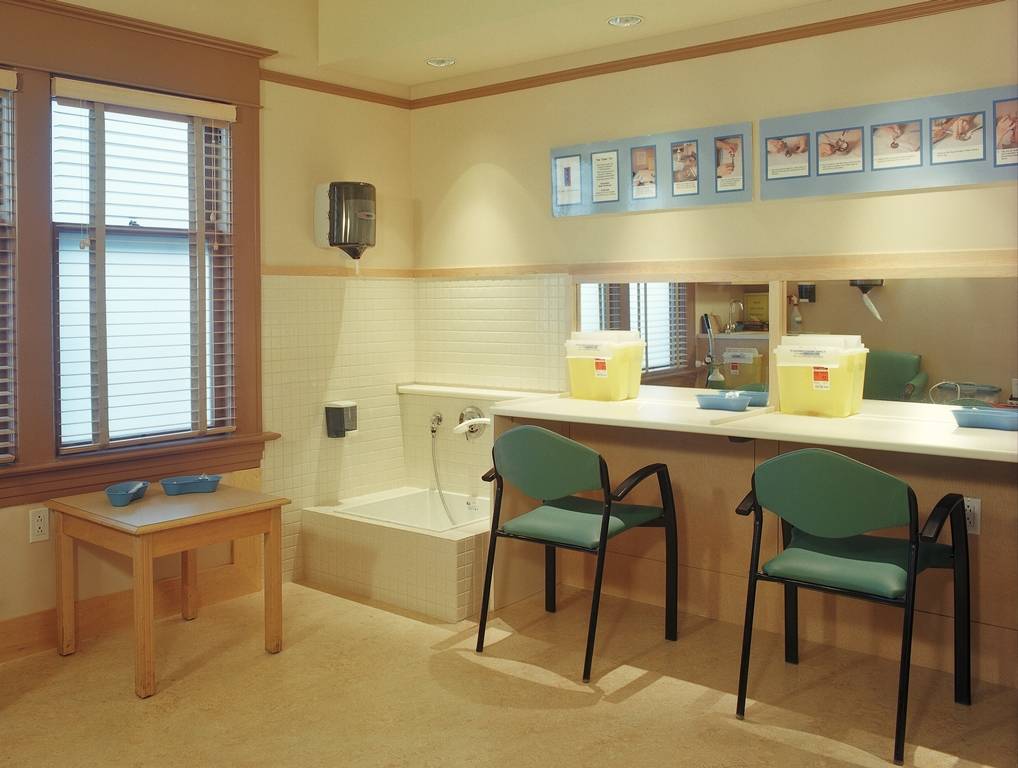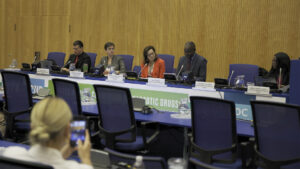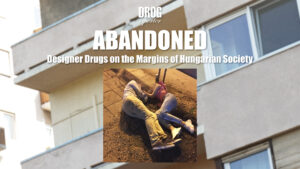Unlike other countries from the former Yugoslavia, Slovenia is experimenting with drug policy in order to improve the public health response to drug use. After almost two decades of advocacy and preparatory legal work, a drug consumption room (DCR) pilot project was launched in Ljubljana, in 2015, by the local NGO, 'Stigma'.
At a regional drug policy conference that took place recently in Belgrade, Re Generation representatives introduced the Room for Change campaign, and spoke about our aim of stimulating public debate about opening a drug consumption room in Serbia. One of the participants, a government official from the Slovenian Ministry of Health, told the audience in his speech that Slovenia was piloting a drug consumption room program in Ljubljana. Usually, such important drug policy changes – significant though they may be for drug policy activists and experts – receive a sceptical welcome from the general public, and are followed by campaigns and enormous media coverage in the Balkans region. In this particular case, however, instead of media promotion, the Slovenian Ministry of Health and the initiating local civil society organisation, 'Stigma', developed their cooperation outside the media limelight. Based on their good coordination, the legal framework was set up, and funds were allocated for this evidence-based public health program.
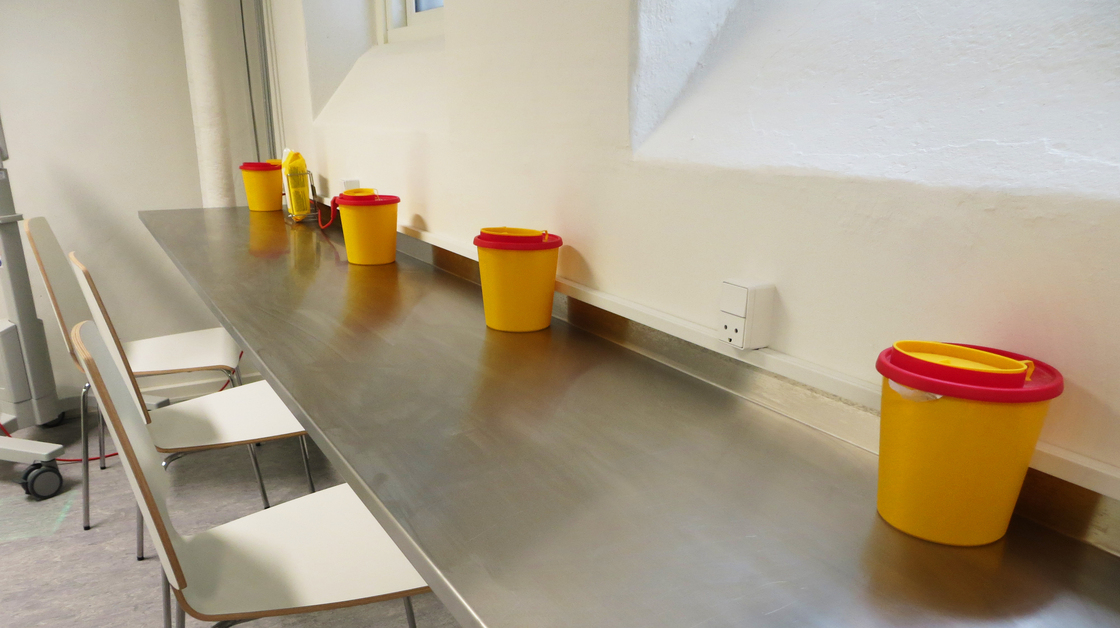 The first thoughts of opening DCR in Ljubljana date back to the middle of the 1990s. 'Stigma' filed an official application to open a drug consumption room with the Government Office for Drugs in 2004, but at the time, the idea wasn’t allowed to turn into reality. Four years later, in 2008, the NGO submitted a criminal law amendment to the Ministry of Internal Affairs, which led to changes in the law in 2012. The new amendment states that, although provision of premises for drug use still constitutes a criminal offence, an exemption can be granted in the case of an organisation providing a treatment program or site for controlled drug use. In addition, there is a requirement that the program must operate under the control of relevant medical institutions. In September 2015, 'Stigma' received funding from the Ministry of Health for a two-year pilot project.
The first thoughts of opening DCR in Ljubljana date back to the middle of the 1990s. 'Stigma' filed an official application to open a drug consumption room with the Government Office for Drugs in 2004, but at the time, the idea wasn’t allowed to turn into reality. Four years later, in 2008, the NGO submitted a criminal law amendment to the Ministry of Internal Affairs, which led to changes in the law in 2012. The new amendment states that, although provision of premises for drug use still constitutes a criminal offence, an exemption can be granted in the case of an organisation providing a treatment program or site for controlled drug use. In addition, there is a requirement that the program must operate under the control of relevant medical institutions. In September 2015, 'Stigma' received funding from the Ministry of Health for a two-year pilot project.
“The idea is to open a DCR in March 2016. At the moment, we are researching the need from drug users’ perspective and preparing evaluation tools for next year. We will monitor changes in drug users’ behaviour, changes in their health status, and harm reduction developments. The second stage of the evaluation will focus on the local community and changes in the local environment – the number of used needles in the community, reduction of public drug use, reduction of drug litter on the streets,” said Borut Bah, President of the NGO. The National Institute of Public Health will be responsible for overseeing, monitoring, and evaluating the pilot program.
The planned duration of the pilot DCR program is six months, although 'Stigma' are hoping that they will have financial support to continue it beyond September 2016. Details on how the DCR will operate, internal rules, and opening hours will be defined in the later stages of the project. “We are trying to identify the best conditions for drug use, in accordance with the needs of drug users, through research that was done in November. Our current program set-up depends on the availability of funds. We are planning to recruit one full-time medical member of staff. The plan is to have six injecting booths, with opening hours from 9.00 until 15.00, although that might change. The DCR will be part of Stigma's drop-in centre in the center of Ljubljana, which has around 50–60 beneficiaries per day. This is also our estimate of the number of persons who will be using the DCR on a daily basis,” said Mr. Bah. One of the planned activities is to create a network of organisations and institutions in Ljubljana, including a Community Centre, Toxicology Centre, and provision to accommodate an effective response in the event of a medical emergency.
The financial plan for the DCR program was presented to, and approved by, the Slovenian Government Commission on Drugs, with estimated annual operating costs of around 80,000 euros, although this estimate allowed for the employment of two medical members of staff. “For 2015/2016, 'Stigma' received 42,500 euros from the Ministry of Health. That is the reason why the project can only be implemented for six months, with only one medical person.” Regarding the expected cost-effectiveness of the program, Mr. Bah stated, “DCR programs are proven to be cost-effective in other countries, and we are confident that our DCR will be cost-effective, too. The yearly budget received for a DCR equals the cost of treating two HIV-positive individuals in Slovenia, so if two new HIV infection cases among drug users are prevented through our project, our program will have already justified the country's support.”
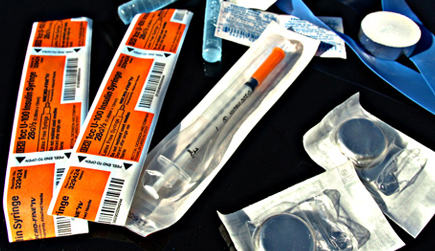 Apart from the prevention of infectious diseases, the other main objectives of the DCR project are to reduce public drug use, and to enhance public health for local communities and residents.
Apart from the prevention of infectious diseases, the other main objectives of the DCR project are to reduce public drug use, and to enhance public health for local communities and residents.
Contrary to the developments in Slovenia, advocating in Serbia for drug consumption rooms resulted in considerable media coverage, with sensationalist headlines, such as, “Room for free drug use to open in Belgrade”. More than twenty national media organisations reported on the issue, and asked questions such as, ‘Where do you plan to buy the drugs’, ‘Where are the drugs going to be stored’, and ‘Who is going to guard the drugs?’ As a result, the extensive public discussion was generally dominated by 'anti' opinions, in the absence of an open and fact-based public debate. The Belgrade government’s response was, as expected, notable by its absence – but on the positive side, the idea of a DCR program was publicly supported by eminent Serbian drug treatment experts.
Jovana Arsenijević, NGO Re Generation
The Re Generation NGO wishes to thank Mr. Borut Bah, President of the 'Stigma' NGO, for his assistance with this article.
